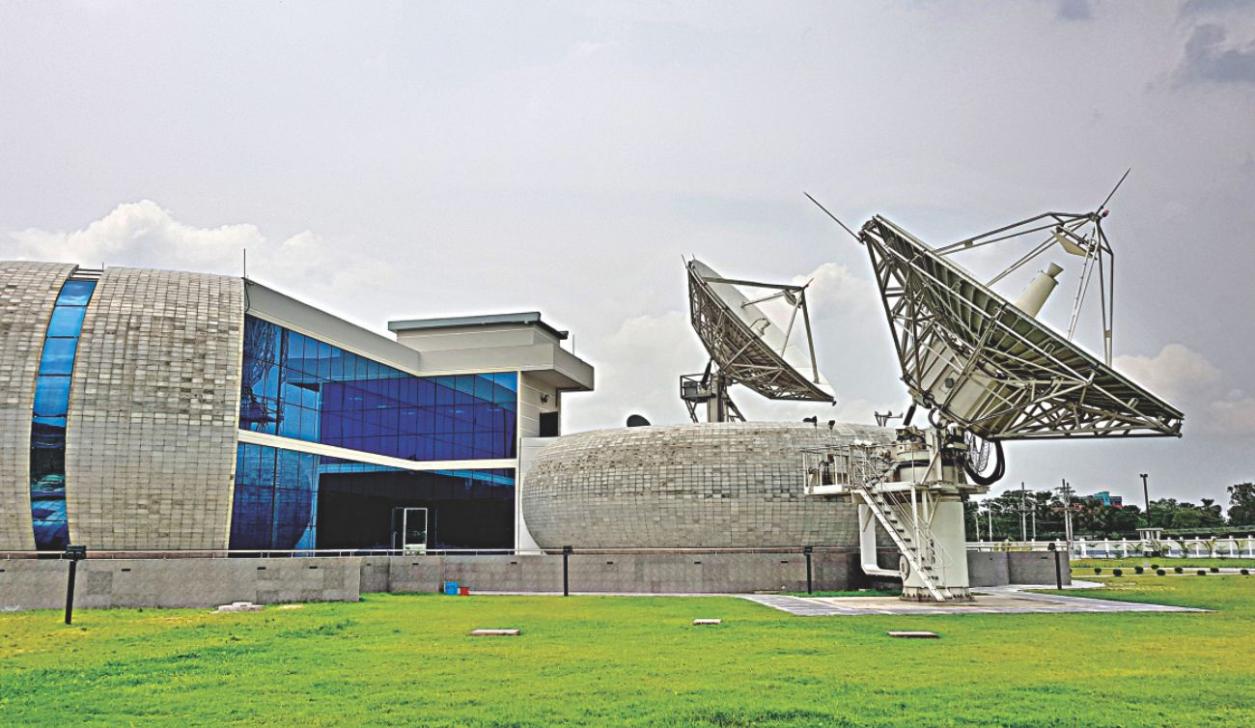Local TV channels using Bangabandhu-1 satellite

Seven private television stations and three channels of state-run Bangladesh Television have started airing programmes using Bangabandhu-1, the country's first communication satellite.
The stations are BTV World, Sangsad Bangladesh Television and BTV Chattogram and private channels Somoy TV, DBC News, Independent TV, NTV, Ekattor TV, Bijoy TV and Boishaki TV. State-run Bangladesh Betar is also using the satellite.
The channels are currently using the Bangabandhu satellite for free and will start paying for the service from March next year. They currently have contracts with satellite Apstar and their cancellation require notifications three months in advance.
“We will start earning from next month,” said Shahjahan Mahmood, chairman of Bangladesh Communication Satellite Company Ltd (BCSCL).
In September, BTV ran live coverage of South Asian Football Federation Championship via the satellite. Some television channels also carried out test transmissions.
Each television station in Bangladesh uses four to six megahertz of bandwidth and spends $20,000 a month on an average for satellite connectivity. If all of them take the service from Bangabandhu-1, the BCSCL will be able to earn $10 million annually, enough to make its business viable.
Currently, there are 34 television channels in Bangladesh which are shelling out $14 million per year to use satellites from other countries.
“Television channels take per MHz bandwidth at $4,000 and we will offer them a better price with attractive discounts for additional bandwidth consumption,” said Mahmood. According to the initial plan, Bangabandhu-1 could reach break-even within seven years. But Mahmood said it could be done ever earlier than that.
Mahmood said TV channels incurred some costs to run their uplink and downlink stations. The BCSCL will allow new television stations to run the service from a single point, helping to save Tk 5 crore.
Fifteen more television channels are set to begin commercial operations in the country.
The satellite was launched in May this year under a project costing Tk 2,765.66 crore, allowing Bangladesh to enter the elite space club of 57 nations who have sent satellites into orbit.
The BCSCL has also signed a deal with the country's first direct-to-home company RealVU, which is testing programmes aired by 48 local and international channels through Bangabandhu-1.
“We are very close to finalising deals with a few companies from the Philippines as well as place where our satellite has a strong footprint,” said Mahmood.
He said the BCSCL's international consultant Thaicom, a renowned satellite company of Thailand currently active in about 20 countries, was working intensively and some new business deals would be on the table within a short time.
“We have lots of challenges in formulating the process of running the satellite company as it is a very new kind of technology and business to us. It also took time to get the key of the satellite.”
On November 9, the BCSCL took over control of the satellite from its manufacturer Thales Alenia Space.
To help the company run smoothly and take decisions faster, the government has formed a high-powered committee headed by the principal secretary to the Prime Minister's Office.
The committee includes five senior secretaries, the chairman of the Bangladesh Telecommunication Regulatory Commission (BTRC) and the BCSCL chairman.
Besides, the telecom regulator has already made it mandatory for new television channels to take bandwidth from the state-owned satellite to ensure optimum use of Bangabandhu-1's capacity.
“If the BCSCL fails to provide the bandwidth they need, only then can they avail services from other satellites,” said Md Jahurul Haque, acting chairman of the BTRC.
The BCSCL has penned preliminary agreements with some government offices and will ink deals with two VSAT companies soon to provide uninterrupted connectivity to banks.
